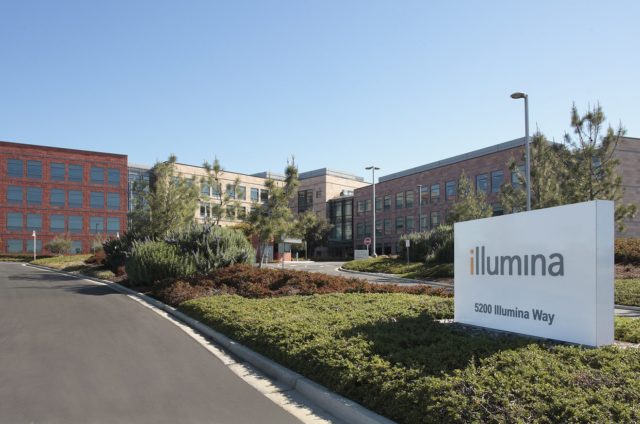
The European Commission has officially ordered DNA sequencing giant Illumina to divest Grail, specifying that the unwinding of the merger must restore the liquid biopsy company to being “as viable and competitive” as it was before the acquisition.
The order announced Thursday leaves it up to Illumina choose the manner of divestiture, which could be a sale to another company or a spinoff as an independent entity. But Illumina still must submit a plan to the commission for approval. In the meantime, the companies must remain separate and the commission has directed Illumina to fund Grail’s cash needs to support its cancer detection test. No timeline was specified for the divestiture.
“Today’s decision restores competition in the development of early cancer detection tests,” Commissioner Didier Reynders said in a prepared statement. “These tests could represent a breakthrough in our fight against cancer. By ordering Illumina to restore Grail’s independence, we ensure a level playing field in this crucial market to the ultimate benefit of European consumers.”
Grail initially developed as a research project within San Diego-based Illumina. In 2016, Grail spun out from its parent, raising money to continue development of its liquid biopsy technology, which detects multiple cancers from a single blood sample. Illumina retained a small stake in Grail. In 2020, it announced an $8 billion deal to acquire the remaining shares it did not own. The following year, Grail launched Galleri, a prescription multi-cancer early detection test that screens for more than 50 types of cancer. Grail has commercialized Galleri in the U.S. and the U.K., but not the European Union.
Regulatory review and commercialization plans often don’t proceed at the same pace. With U.S. and European antitrust authorization still pending in 2021, Illumina closed the Grail acquisition in an apparent attempt to avoid paying a $300 million termination fee specified in the agreement if the deal was not completed by Dec. 20 of that year. But that premature action was viewed unfavorably by European regulators. This past summer, the commission fined Illumina €432 million (about $476 million) for closing the Grail acquisition before conclusion of the antitrust review. The penalty was the maximum amount permitted under European merger law.
Illumina has appealed, contending that the European body does not have jurisdiction over a transaction between two U.S. companies. Illumina is also appealing in the U.S., where the Federal Trade Commission has concluded the business combination is anti-competitive. While those legal proceedings continue, Illumina has kept its operations separate from Grail’s, which is a requirement of a prior European Commission order. An independent monitoring trustee is ensuring compliance with the order, which bars the sharing of confidential information.
Illumina still has a window into Grail’s finances. According to an Illumina stewardship presentation for investors, Grail has generated $109 million in revenue from the close of the acquisition through the end of the second quarter of this year. The presentation, which posted to the company’s website after Wednesday’s market close, includes a section on the Grail regulatory process and potential outcomes. If Illumina loses one or both of its appeals, the company will divest Grail, the presentation states. But even if Illumina wins both appeals, divestiture is still in the cards.
“We will fully reassess the Grail portfolio of assets, which may result in integrating or divesting part or all of Grail, consistent with maximizing shareholder value,” the company said in the presentation.
If Illumina does not sufficiently comply with the restorative measures outlined in the latest European Commission order, it could be responsible for an additional fine. Citing European Union merger law, the commission said it may impose periodic penalty payments of up to 5% of the company’s average daily revenue. Complete failure to comply with the requirements incurs a fine of up to 10% of annual worldwide revenue—the same penalty the commission imposed when Illumina prematurely closed Grail acquisition.
In a note sent to investors Thursday, Leerink Partners analyst Puneet Souda said the long saga of the Grail acquisition appears to be heading toward resolution. Though the commission is not specifying how much cash Illumina should set aside to support Grail, it appears the liquid biopsy firm’s operating loss could remain on Illumina’s books until the divestiture. According to Souda, Illumina has said it expects Grail will post a net operating loss of $670 million in 2023.
“We continue to expect Grail divestiture as the likely outcome despite ongoing appeals, and we believe investors would view divestiture positively given the lift of a regulatory overhang and substantial margin dilution,” Souda said.
Photo by Illumina








